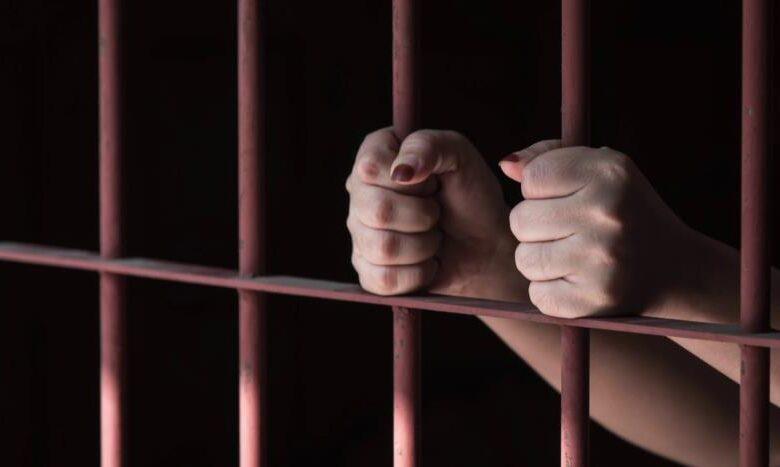
Unlocking Democracy: Empowering Prisoners To Cast Their Votes In The 2024 Elections
Ayesha, currently detained in Central Jail Peshawar, expressed her sentiments. In the lead-up to the 2024 elections, only five women in the Central Jail have shown interest in voting, and their details have been submitted to the respective Returning Officers following the prescribed procedure. Section 93 (d) of the Election Act, 2017, allows individuals in detention or custody to exercise their voting rights through a postal ballot paper.
Section 26 of the Election Act specifies the criteria for voter registration, including being a citizen of Pakistan, at least 18 years old, mentally sound, and deemed a resident of the relevant constituency under section 27.
The provisional list from the Election Commission reveals that 7713 nomination papers were submitted for the National Assembly, with 7242 male candidates and 471 female candidates. Additionally, 459 candidates submitted papers for seats reserved for women in the National Assembly from the four provinces. In Khyber Pakhtunkhwa (KP), 39 women candidates submitted their papers for the National Assembly, and 321 forms were received for reserved seats for women in the KP Assembly.
Also Read: Dramatic Decline in Student Admissions at University of Peshawar Sparks Concerns
According to the data released by the Election Commission for the February 8, 2024 elections, the total number of registered voters in the country is 128,585,769, with 69,263,704 male voters and 59,322,056 female voters. In KPK, there are 21,928,119 registered voters, with 11,944,397 male voters and 9,983,722 female voters.
For the upcoming elections, the Election Commission has facilitated postal voting for government employees on duty or residing outside their constituencies, their families, disabled persons unable to travel, and those under arrest or detention. Employees deputed for election duty outside their polling station can also apply for postal ballot papers through the Returning Officers.
Sohail Ahmed, the spokesperson of the Election Commission, outlined the process for male and female prisoners to cast their votes. Prisoners need to send an application by post to the returning officer of their constituency at least fifteen days before the election. The returning officer will verify the application with the voting list. If the prisoner's name is in the same constituency, the returning officer will issue a postal ballot. Twenty days before the election, the returning officer will send two envelopes to the jail administration, one small and one big, with the returning officer's address. The inmate writes the candidate's name on the postal ballot, places it in the small envelope, and then in the large envelope. After entering the returning officer's address, the prisoner gives the envelope to the jail administration, which sends it back to the returning officer by post. This entire process is free of charge. During the final results announcement, returning officers will count the votes from postal ballots and include them in the statistics.
Deputy Director of Prisons Majid Ghufran stated that Khyber Pakhtunkhwa has 14,050 male prisoners and 300 female prisoners. The law grants prisoners the right to vote, and the Election Commission provides all necessary facilities. The Election Commission instructed prisoners to submit their identity card copies and details of their constituency and voting area. Completed forms should be sent to the Election Commission. After receiving the ballot papers, the polled votes will be sent to the concerned Election Commission or returning officers via postal ballot through the post office.
Deputy Superintendent Prisons Peshawar, Akhtar Hussain Shah, mentioned the daily changes in the number of prisoners, with an average of 38-40 in Central Jail Peshawar. Among them, 38 are female prisoners, eligible to vote and holding identity cards. The prison provides facilities, including notice boards and distributed forms, encouraging interested prisoners to vote. However, in the last election, no female prisoner from Central Jail Peshawar participated in the polling.
According to the Pakistan Statistical Institute, the total population of Pakistan is 220,425,254, with 111,693,464 males and 108,731,790 females. In Khyber Pakhtunkhwa, the female population is 1,562,440.
Naeema Kishwar, Convener of the women's wing of Jamiat Ulema-e-Islam (F) and former National Assembly member, emphasized that both male and female prisoners should use their vote for an active role in important decisions. She suggested building polling stations in jails nationwide, as the postal ballot method is complex, leading many prisoners to hesitate.
Tahira Bukhari, the provincial president of the Pakistan Muslim League Women's Department, stressed the need for political awareness, especially among marginalized groups like religious minorities, disabled individuals, transgender communities, and women. While jails have TV facilities, simplifying the voting process is crucial.
Khursheed Bano, the chairperson of“Hawa Lor,” an organization focusing on prison reforms, highlighted the role of non-governmental organizations in promoting voting rights among prisoners. She addressed concerns about reassurance for imprisoned voters, ensuring their votes are counted for their preferred candidates on election day. Bano also advocated for political parties to conduct activities in jails during elections to enhance political awareness among prisoners.
Note: This story is part of a Thomson Foundation election reporting fellowship overseen by TNN.

Legal Disclaimer:
MENAFN provides the information “as is” without warranty of any kind. We do not accept any responsibility or liability for the accuracy, content, images, videos, licenses, completeness, legality, or reliability of the information contained in this article. If you have any complaints or copyright issues related to this article, kindly contact the provider above.
Most popular stories
Market Research

- Manuka Honey Market Report 2024, Industry Growth, Size, Share, Top Compan...
- Modular Kitchen Market 2024, Industry Growth, Share, Size, Key Players An...
- Acrylamide Production Cost Analysis Report: A Comprehensive Assessment Of...
- Fish Sauce Market 2024, Industry Trends, Growth, Demand And Analysis Repo...
- Australia Foreign Exchange Market Size, Growth, Industry Demand And Forec...
- Cold Pressed Oil Market Trends 2024, Leading Companies Share, Size And Fo...
- Pasta Sauce Market 2024, Industry Growth, Share, Size, Key Players Analys...






















Comments
No comment